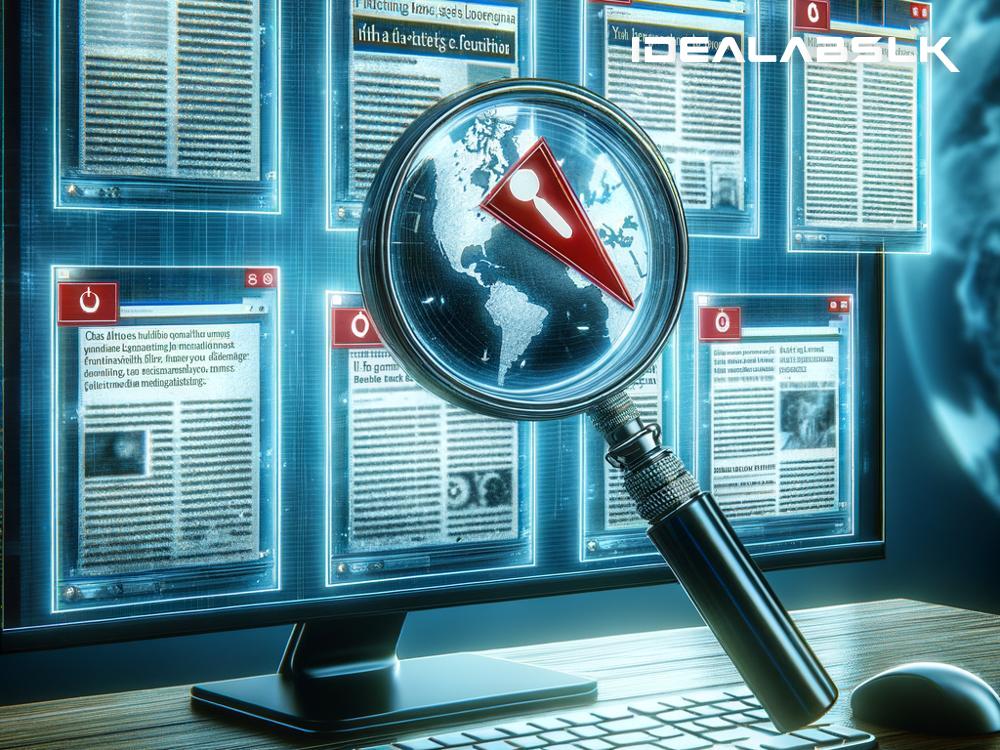How AI Fights Against Fake Celebrity News and Misinformation
In the whirlwind world of celebrity news, it's incredibly easy to get caught up in stories that seem too intriguing or scandalous to ignore. However, the truth is that not every story you come across on the internet is true. In fact, there's a ton of fake news and misinformation floating around. So, how do we separate fact from fiction, especially when it comes to celebrities? The answer, interestingly enough, lies in the realm of Artificial Intelligence (AI). Let's dive into how AI is becoming a superhero in detecting fake celebrity news stories and misinformation.
The Rise of Fake Celebrity News
In the age of the internet, creating and spreading fake news has become alarmingly easy. A rumor about a celebrity can start on one platform and spread like wildfire across social media, tricking millions. Sometimes, these stories are harmless, but other times they can have severe implications on the celebrities involved and mislead the public. Moreover, distinguishing what's real from what's not has become increasingly difficult for the average person.
Enter AI: The Misinformation Detective
Artificial Intelligence, in simple terms, is the simulation of human intelligence processes by machines, especially computer systems. These processes include learning (acquiring information and rules for using it), reasoning (using rules to reach conclusions), and self-correction. Specifically, in detecting fake news and misinformation, AI uses several methods, including:
Language Analysis
AI systems can examine the language used in articles or posts. They look for patterns that often indicate something might be fake. For instance, fake stories might use more sensational language to evoke strong emotions or could contain grammar that typically wouldn't be found in professional journalism. AI algorithms are trained to spot these signs and flag content for further review.
Source Verification
AI can also quickly cross-reference the information with trusted sources. It scans a vast database of reliable information and checks if the story in question matches up with established facts. If a story says a celebrity did something outlandish, and no reputable source can confirm it, the AI can mark it as suspicious.
Image Recognition
You've probably seen those photoshopped images of celebrities that look convincing at first glance. AI uses image recognition technology to analyze pictures and videos to verify their authenticity. It can detect inconsistencies, manipulations, and even identify when an image was created, helping to debunk fake stories that rely on visual evidence.
Predicting Credibility
Some AI systems are designed to evaluate the credibility of the source itself. By analyzing a site's history, the quality of its content, and its behavior on social media, AI can predict whether it's likely to publish reliable news or not. This helps in proactively preventing misinformation from spreading.
The Impact of AI on Fighting Misinformation
The benefits of using AI to detect fake celebrity news stories are enormous. It significantly speeds up the process of fact-checking, making it easier to keep misinformation at bay. This not only protects the reputation of public figures but also ensures the public gets accurate information. Moreover, as AI technology evolves, its accuracy continues to improve, making it an even more potent tool against the spread of fake news.
Challenges and Considerations
However, it's essential to remember that AI isn't perfect. It can sometimes make mistakes, misunderstanding sarcasm or missing context that a human might catch. There's also the concern regarding privacy and surveillance, as the technology involves analyzing large amounts of data and content.
The Future of AI in News Verification
Looking ahead, the role of AI in detecting misinformation is only set to increase. With advancements in technology, we could see more sophisticated AI systems being developed, capable of understanding the nuances of human communication even better. This, combined with human oversight, promises a future where fake news might become easier to combat.
Conclusion
In a constantly connected world where information - and misinformation - spreads faster than ever, AI stands as a beacon of hope in ensuring what we read online, especially about our favorite celebrities, is true. While there are still hurdles to overcome, the contributions of AI in filtering out fake news are undeniable. By leveraging technology, we're moving towards a future where truth prevails, strengthening the integrity of the information we consume daily.

